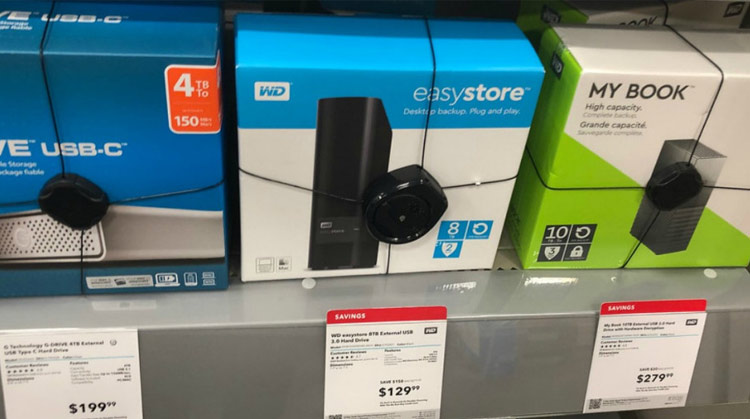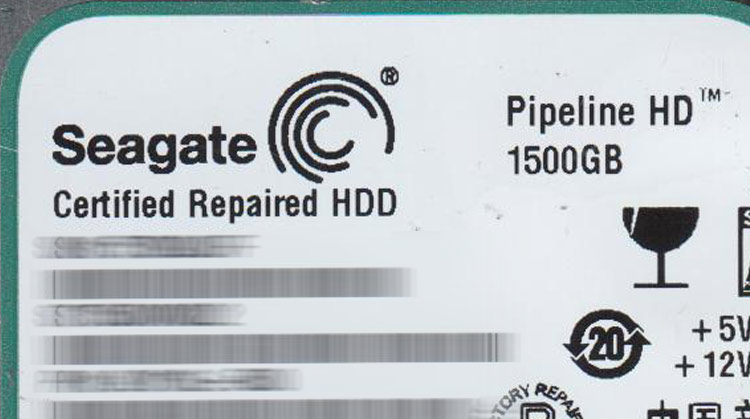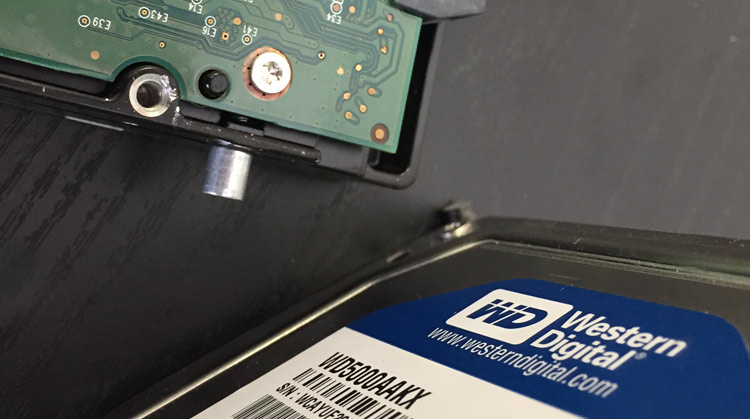
Generally speaking, when consumers decide to shop for a hard drive, they tend to seek the most affordable solution. Although cost saving is attractive, it isn’t always the best measuring tool to use for such a vital piece of equipment.
Here are the things you should be looking at when shopping for a hard drive:
New or Refurbished
If we just look at cost, a cheap 4TB hard drive that has been refurbished by the manufacturer could cost you about $60. It sounds like a great deal, right?
Well, let’s take a closer look at this type of hard drive. The word ‘refurbished’ indicates that the hard drive was repaired and brought back up to working condition. It also means that you don’t know what exactly the original problem was before it got refurbished. Depending on the severity of that specific problem, you risk it coming back to haunt you at a later date.
Essentially, you invested $60 on a ticking time bomb and have surrendered your data to that very same bomb.

Cost
The scenario explained in my first point can also fit in this one as well. But let’s say you find a new hard drive that has an affordable price and without conducting much research you go ahead and buy it.
The chances are that you have now purchased a hard drive that has a high failure rate or bad performance. This doesn’t really mean that a higher priced hard drive won’t be as bad because they can be. This is why you should check out other factors before making the decision to buy. This also does not mean that there are no hard drives out there with good ratings in the industry or high reliability or performance. A good example of this is the WD Blue Family which features good quality, affordable hard drives for the average user.

Reliability
How reliable is the hard drive? How can you tell which is a reliable one and which isn’t? Typically, hard drives – those made for regular users or professionals such as video editors and music composers – all require a specific type of hard drive that will work best for their requirements. The manufacturers usually make it clear to their customers in press releases which scenarios their hard drives are optimized for. So, as an example, a video editor will require a hard drive that will perform optimally with video. This means that a particular type of hard drive will be the most reliable in the sphere.
Performance And Speed
This is the most crucial of the factors. Just as I mentioned in the point above, a video editor will need a hard drive that will perform well within the video environment. A sound engineer will need a hard drive that will be optimal in performance for bouncing large audio files without delay. Whether you are a gamer and require super-fast speeds or an audio engineer, there are hard drives that will work best in your spectrum. Gamers, for example, sometimes don’t wish to switch to SSD and will go for 10K RPM speed hard drives, which are not too far away from the performance of SSD. Are they really reliable? Maybe if you are looking for drives to work in RAID configs and need faster cache speeds.
Warranty
Most hard drive manufacturers provide at least 5-year warranties on their hard drives. Some provide even more than that. However, there is a few that offer just three years so you have to be careful when choosing a hard drive. If you are working in a data stress environment and failures happen frequently, you will need a drive that can be replaced in a reasonable amount of time.
Just be sure to not remove any seals that will end up voiding your warranty. And hopefully nothing happens to that hard drive and you have to send it to a data recovery firm first before getting it replaced. This is why you should find out which centers are authorized and will still give you a replacement even of the seals have been removed.
Failure Stats
This isn’t the easiest to locate but there are still a number of good sources that provide failure stats on the most modern drives. Here is one. It is a good idea to find and compare the high performance, good reviews on the seller’s websites, manufacturer’s websites and failure stats. If they all match, that is good. It means you have a good fit. If the reviews on seller sites are high but failure stats are high, then something isn’t quite right. I would personally shy away from buying that type of drive. But, it is still your decision. I’m just here to offer you good advice.
In Conclusion
With good research, you will be able to cover all of these points. If you still feel the hard drive you are looking at is a good fit after screening it through the factors listed above, then it probably is a good fit. If you have any doubts, then I would think twice. Happy hunting and safe buying!
